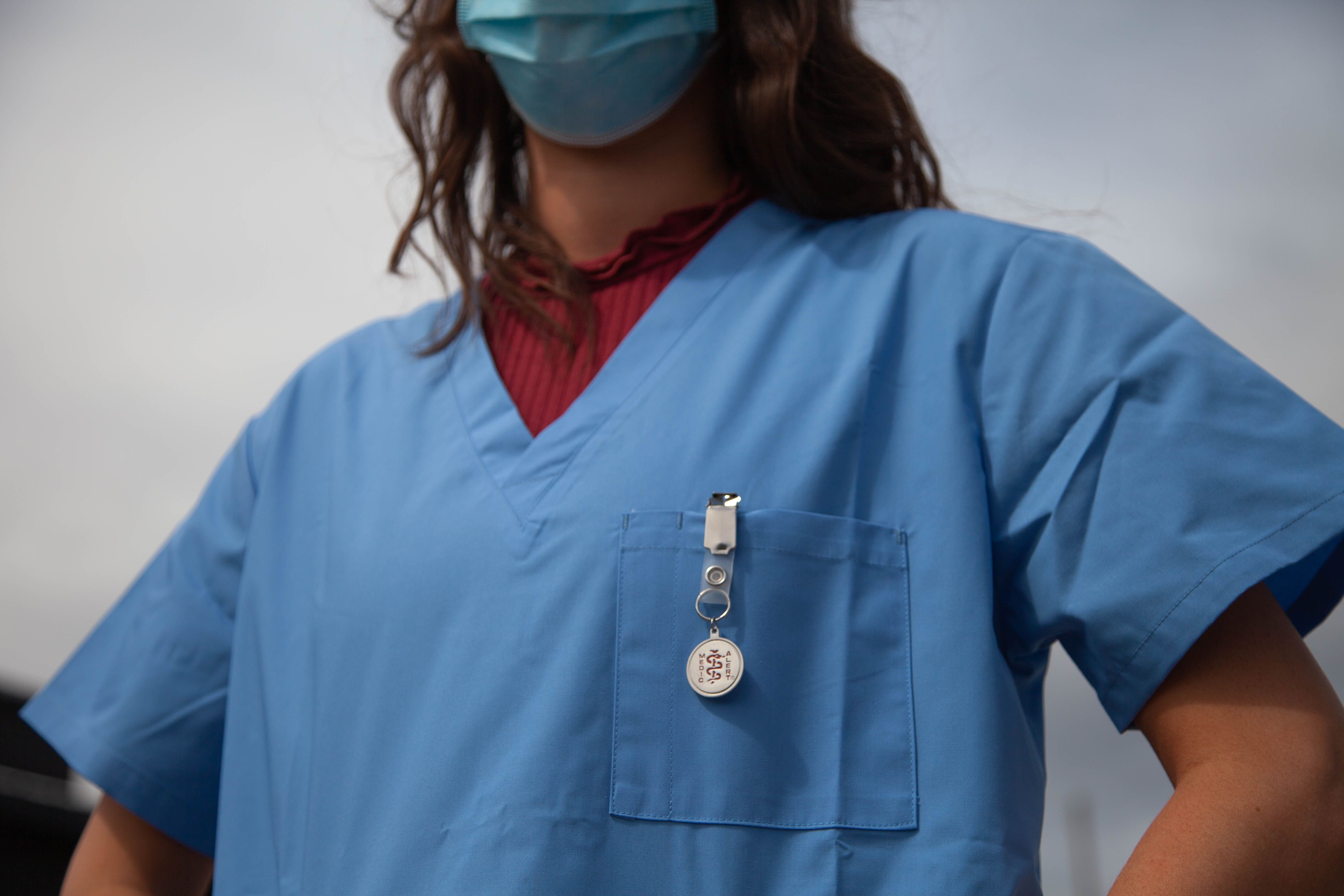
This page contains additional information before you start work in Ireland as an NCHD.
Who can work in Ireland
The Medical Council
The Medical Council regulates medical doctors in the Republic of Ireland. The council’s purpose is to protect the public by promoting and ensuring high standards of professional conduct and professional education, training, and competence among doctors.
The council’s key responsibilities include:
• Maintaining the Register of Medical Practitioners, which anyone can consult to see if their doctor is registered to legally work in Ireland.
• Ensuring the highest standards of medical training and education in the Republic of Ireland.
• Promoting good medical practice and overseeing doctors’ continuing professional development.
• Investigating complaints against medical doctors.
All doctors working in Ireland must register with the Medical Council before commencing employment by applying to one of the four divisions:
• General registration
• Specialist registration
• Trainee registration
• Supervised registration
The division of the register you are eligible to apply for will depend on where you qualified and what training you have completed. The final decision in granting registration to a doctor is decided by the Medical Council.
Learn more about registration and check your eligibility. www.medicalcouncil.ie/registration-applications/
Requirements
Doctors granted specialist, general, or supervised registration by the Medical Council are legally obliged to maintain their professional competence by enrolling in a professional competence scheme (PCS) and meeting the requirements set by the Medical Council. If you are on the register and practising for more than 30 days a year in Ireland, you must enrol in a PCS, engage in continuous professional development (CPD) activity, and maintain documentation relating to this activity. The PCS year runs from 1st May to 30th April annually.
Postgraduate medical training bodies operate professional competence schemes on behalf of the Medical Council. Doctors are required to enrol in the professional competence scheme most relevant to their scope of practice.
Learn more about continuous professional support scheme (CPD-SS) for funding supports provided by the HSE and professional competence schemes.
See also, Financial Support pages on this website under Offerings menu above and @ end of this page.
All doctors in Ireland must be police vetted before commencing their employment. You will not be able to start working until the HSE can confirm that your appointment does not pose a risk to clients, service users, or employees. An Garda Síochána is the national police service in Ireland and responsible for issuing police clearance (often called Garda vetting) through the National Vetting Bureau for anyone living in Ireland.
If you have only lived in the Republic of Ireland or Northern Ireland, the process of being police vetted involves disclosing any convictions, probation, or community service you have received for crimes or infractions including driving offences, non-payment of a TV licence, and public order offences in the Republic of Ireland or Northern Ireland. Your Medical Manpower Department makes the request to the National Vetting Bureau once you have completed the necessary paperwork. Once your police vetting disclosure has been issued, the Medical Manpower Department will upload this to your National Employment Record (NER) account, where you will be able to view it.
Learn more about police vetting in Ireland.
National Vetting Bureau (garda.ie)
If you have lived outside of Ireland for more than six months since becoming an adult, you will also need security clearance for each legal jurisdiction you have resided in. This clearance should state that you have no convictions recorded. It must be dated after you stopped living in the jurisdiction and cover the entire period you lived there. Seeking security clearance from other countries is your responsibility. To find out how to obtain security clearance from other countries, you should contact their respective embassies. Some links to get you started are below:
- Police vetting in the United Kingdom: acro.police.uk
- Police vetting in Australia: afp.gov.au
- Police vetting in New Zealand: police.govt.nz
- Police vetting in the USA: fbi.gov (Please note that only FBI clearance is valid if you lived in the USA. State clearance is not acceptable as it does not cover the whole country.)
- Police vetting in Canada: rcmp-grc.gc.ca/en/criminal-record-checks
A pre-placement health assessment is carried out by the occupational health service to ensure you are physically and mentally fit to do your job. The assessment involves a questionnaire and, if necessary, a medical consultation. You will be sent a screening questionnaire during the application process. You must disclose any underlying health conditions and provide relevant immunisation details - if you give false information, your application may get rejected or your contract may be affected.
Depending on your medical history, or the work you will be doing, you may also be asked to:
• provide a report from your general practitioner (GP)
• provide a report from a medical specialist
• attend a medical assessment with the occupational health doctor
Immunisation screening ensures you have adequate protection against certain infectious diseases. This is to safeguard your health and the health of service users. An immunisation form will be uploaded to NER by your occupational health department. The immunisation screening and vaccinations you will be asked for depends on the risk assessment of your job and will differ for each role. You can contact the occupational health service to arrange vaccinations (this can be done after you have started working). Prospective employees are requested to submit evidence of previous immunisation. This will not hold up the pre-placement assessment process unless the post requires exposure prone procedures (EPP) certification.
Immunisation evidence is usually required for:
• BCG or evidence of immunity to tuberculosis (TB)
• Hepatitis B antibodies
• Varicella
• Measles, mumps, and rubella (MMR)
Learn more about immunisation guidelines in Ireland. www.rcpi.ie/HealthcareLeadership/NIAC/Immunisation-Guidelines-for-Ireland
Exposure prone procedures (EPP) are medical processes where an injured healthcare worker could potentially contaminate a patient’s open tissues with their blood, leading to the risk of blood borne virus (BBV) transmission. This term covers a range of scenarios, one example being a procedure where a gloved hand inside a patient’s open body cavity or wound comes into contact with needle tips, sharp instruments, bone, or teeth.
In some fields – for example, surgery - the hands or fingertips of the healthcare worker may not be always completely visible, meaning that injury is not noticed and acted upon immediately. To mitigate risk during these procedures, EPP healthcare workers must have EPP certification or evidence of relevant blood test results from an identified validated sample (IVS). If you do not have one of these, you must attend the occupational health service for IVS bloods.
For your blood sample to be validated, you will need to bring a passport or driving licence for identification. The document will be photocopied and signed by the clinician taking the blood. Your recruitment contact will advise you if your role requires EPP clearance. If it does, you will not be cleared for work until the blood test results are available.
Learn more about pre-placement health assessments.
The Clinical Indemnity Scheme (CIS), operated by the State Claims Agency, provides doctors with cover for clinical negligence claims that occur in public hospitals and HSE facilities. However, complaints to the Medical Council, police (Garda) inquiries, and disciplinary hearings are not covered and could leave doctors facing such situations on their own.
Medical Protection – a member-owned, not-for-profit protection organisation for doctors, dentists, and healthcare professionals - offers members assistance with a wide range of legal and ethical problems that can arise from professional practice.
Learn more about state indemnity and Medical Protection.
www.stateclaims.ie/state-indemnity/clinical-indemnity-scheme
The National Employment Record (NER) was developed by NDTP in response to one of the key recommendations of the Strategic Review of Medical Training and Career Structure (MacCraith) reports. The recommendation was based on direct feedback from non-consultant hospital doctors (NCHDs). The NER was designed to minimise repetitive paperwork for NCHDs and eliminate as much duplication as possible when rotating within the Irish health system.
The NER enables you to interact virtually with your Medical Manpower Department and occupational health department. You can submit pre-employment screening documentation and access financial supports for both the Training Support Scheme (TSS) and the Clinical Course Exam Refund Scheme (CCERS).
The NER E-Portfolio module also gives you access to a generic standard document to record all your training and career development. It also allows such experience to be validated by your supervising clinician or consultant, where applicable.
You can access the NER from a browser or via a smartphone app (Android or iOS)
Link to App Google Play Store (Android Device)
Link to App Store (IOS / Apple Device )
The NER contains a number of modules to support you with pre-employment and will continue to assist you throughout your employment in the Irish health service. The modules available on the NER (online or in-app) include:
- Employment Documents: update your hire form - which is used by the Medical Manpower Department for on-boarding purposes - and view your police/Garda vetting and work permit (if applicable). Please note, your police/Garda vetting and work permit documents are uploaded by your Medical Manpower manager on your behalf.
- Occupational Health Documents: update your occupational health form, upload your immunisation form, and view your exposure prone procedure (EPP) certificate. Please note, your EPP certificate will be uploaded by your occupational health department on your behalf.
- Training Certificates: upload certificates from any training you have completed (for example, advanced cardiovascular life support (ACLS), basic live support (BLS), or hand hygiene).
- Personal Details & Other Documents: upload copies of personal documents such as your passport, birth certificate, and English language certification.
- Educational & Training Financial Supports: claim reimbursement for eligible courses, conferences, and exams under the Training Supports Scheme (TSS) or Clinical Course & Exam Refund Scheme (CCERS). See Financial Support pages on this website under Offerings menu above and @ end of this page.
- E-Portfolio/Logbook: record your training and career development.
Learn more about using the NER.
www.hse.ie/eng/staff/leadership-education-development/met/database/userguides/
Did you know...?
The E-Portfolio module, launched on the NER in September 2021, won NCHD Project of the Year in the 2022 Irish Healthcare Awards.
The principal objective of the E-Portfolio is to allow NCHDs not on formal training schemes to access a generic standard document for recording their training and career development. In addition, such experience can be validated by the supervising clinician or consultant, if required. All NCHDs can access the E-Portfolio through their NER account, however it is primarily aimed at doctors who are not currently working in training posts.
The E-Portfolio generates a Logbook from recorded experience under the following categories:
• Clinical experience
• Procedures
• Assessments
• Training plan & review
• Education and personal development
Access E-Portfolio resources, including user guides, FAQs, and an introductory video.
The Safe Start guide, developed by the Medical Council, will help you understand the general requirements when practising medicine in Ireland and how to deal with some common clinical practise scenarios that may arise during your employment. We advise reviewing this guide before you commence employment.
Download Safe Start (PDF).
The Employee Handbook, created by the HSE, provides comprehensive information about employee services and policies and is invaluable for both new and existing employees of the health service.
Learn more and download the latest version.

Documents & info
Checklist prior to week one
Before commencing in post, you should ensure you have:
o Evidence of Medical Council registration
o Evidence of meeting Medical Council continuing professional development (CPD) requirements
o Received satisfactory police vetting. Your Medical Manpower Department should have uploaded this to your NER account
o Created a National Employment Record (NER) account and completed all relevant sections such as:
o The NER hire form, occupational health assessment, and supporting documentation (if necessary)
o An up-to-date curriculum vitae
o Proof of qualifications and certificates
o Received an employment offer letter, which should be signed and dated
o Provided at least two references (one of which must be from the most recent supervising consultant or employer)
o Received details of a start date and reporting link for day one
In addition, if you are moving to Ireland for the first time you should ensure you have:
o An Irish mobile phone
o Accommodation
o A personal public service (PPS) number
o An Irish bank account
o An active Revenue myAccount (if you have not worked in Ireland before, register your first employment by selecting ‘Update Job and Pension details’ in myAccount)
o A valid English language certification (if applicable), which should be uploaded to the correct section of your NER account
o Secured the necessary visa
o A valid work permit (if applicable), which should be uploaded to the correct section of your NER account
o Attended the local immigration office



